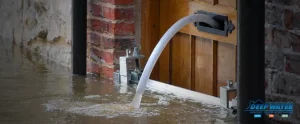Every building and home structure needs a strong foundation. This works on distributing the vertical loads of different building materials, including the occupants, to the soil. A foundation also keeps the soil from moving around and underneath a property.
A problem with your foundation should be a cause for concern. Often, this can come in the form of a crack, which may need to be repaired depending on the severity. Foundation cracks repair can be costly, so it is crucial to assess the extent of the damage first and then come up with the best way to have this fixed.
What Do Foundation Cracks Look Like?
A year after a home or a building is constructed, a hairline crack, about the same width as a sewing thread, often appears on basement walls. These cracks can also be found near doors, windows, or corners due to normal “settling” or slight concrete shrinking during the curing process.
However, this type of settlement crack should not be a cause of concern unless it shows signs of expansion. It’s best that you monitor the crack and see if it’s getting bigger or if new cracks are growing over the next few months. To do this, you can mark both ends of the crack with a pencil and write the date next to each mark.
Types of Foundation Cracks
To repair a foundation crack effectively, you need to identify its type. Listed below are the common foundation crack types.
1. Horizontal Cracks
Horizontal cracks, especially in the basement area, can be serious. These can occur in both poured and block foundations.
Unbalanced soil or hydrostatic water pressure pressing against the basement wall could be the cause of horizontal foundation cracks. The foundation may eventually bow inwards, causing water to leak into your basement.
2. Vertical Cracks
These cracks are not as dangerous as their horizontal counterparts and do not pose any structural danger. Vertical cracks are common in foundation walls that run straight up and down and are usually the result of foundation settlement or natural concrete curing.
Nevertheless, vertical cracks in block foundations that form near corners and are wider than 1/8 of an inch indicate that there could be a problem. It’s best to contact a professional if the vertical foundation cracks are unusually long.
3. Diagonal Cracks
Most diagonal cracks can be found at a maximum of 30 degrees vertical. They are not dangerous and do not pose any threat to your foundation’s structural integrity. However, if there is obvious crack growth and it does not appear to slow down, you’ll need to monitor this for six months.
4. Hairline Cracks
Newly-constructed structures are susceptible to foundation hairline cracks. These usually develop within one year of foundation settling and drying. They can be repaired to preserve the foundation aesthetics, as your warranty could cover them.
5. Shrinkage Cracks
These are similar to hairline cracks, which develop when the concrete foundations dry out and lose moisture. Shrinkage cracks are common in new homes, which is why they are also known as new construction foundation cracks.
6. Stair Step Cracks
These cracks can form along mortar joints and pose a danger to your basement foundation’s integrity. Stair step cracks can mean that the foundation settlement in one area of the structure is sinking. They could also indicate a moisture problem outside of your foundation.
7. Structural Cracks
These types of foundation cracks can be dangerous and could be signs of structural deficiencies. They can develop initially from stress due to movement. Other factors like soil pressure and temperature change can also lead to structural cracks. Additional reinforcement is often required to prevent crack expansion, notably by applying carbon fiber countersunk straps.
8. Foundation Slab Cracks
Concrete slabs poured with concrete are susceptible to cracking over time. Understanding why this happens can be difficult, but the reason is either because of concrete curing or slab settlement. While curing is a natural drying process for concrete, foundation settlement can be problematic. It is because it could indicate poor workmanship, poor soil condition, or poorly compacted supporting ground.
A third reason for foundation slab cracks is frost heave, which often occurs during winter. This is where cold water beneath the slab freezes, causing the concrete to buckle down.
9. Non-Structural Cracks
These are types of foundation cracks that typically occur during rainstorms and when the snow melts. Even though there is no visible structural damage, water can seep into these cracks and pose a problem that should be given attention.
The cracks may not directly cause damage but can serve as entry points for leaks. These, in turn, can ruin your walls and floors, aside from encouraging mold growth.
10. Wet Non-Structural Cracks
These are cracks caused by foundation shrinkage after the water evaporates. They usually appear within the first month after the concrete is poured onto the foundation; if more water is in the concrete mix, the greater the chance the cracks will form.
Key Takeaway
Cracks on your walls can be scary at first glance because they might signify that your house could fall. Not all cracks, however, are serious and could simply result from concrete curing. Still, foundation cracks should not be ignored; they may need to be monitored and inspected to see if they can lead to extensive damage.
Becoming familiar with the different types of foundation cracks should give you a better understanding of what to watch out for. In particular, you should be wary of large cracks where water could seep through and result in water damage. Mitigation experts will have to come in if this happens, so your ruined home can be rebuilt.
For water damage issues, contact Deep Water Emergency Services and Mitigation.
Home cracks are best taken seriously because they could lead to unwanted ruin. Water damage, for example, is likely when your house has cracks. When it strikes, however, all you need to do is contact Deep Water Emergency Services and Mitigation.
Rest assured that our water damage mitigation Colorado Springs experts will work with you in getting your life back after the disaster. Call us and you’ll soon see that we are the best in the industry.






